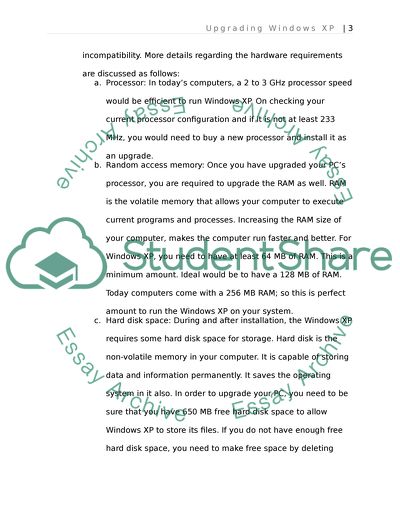Cite this document
(“Upgrading Windows XP Term Paper Example | Topics and Well Written Essays - 1250 words”, n.d.)
Retrieved from https://studentshare.org/information-technology/1425010-upgrading-windows-xp
Retrieved from https://studentshare.org/information-technology/1425010-upgrading-windows-xp
(Upgrading Windows XP Term Paper Example | Topics and Well Written Essays - 1250 Words)
https://studentshare.org/information-technology/1425010-upgrading-windows-xp.
https://studentshare.org/information-technology/1425010-upgrading-windows-xp.
“Upgrading Windows XP Term Paper Example | Topics and Well Written Essays - 1250 Words”, n.d. https://studentshare.org/information-technology/1425010-upgrading-windows-xp.


